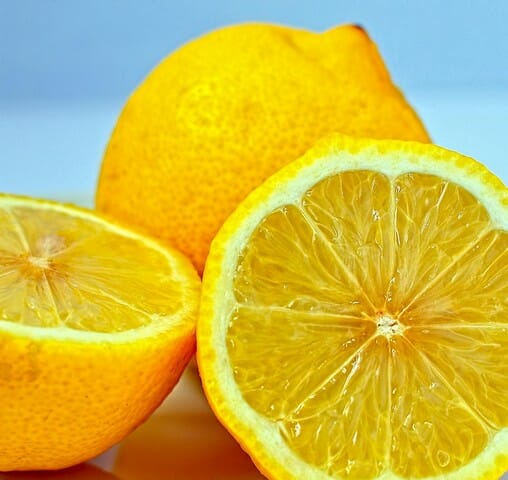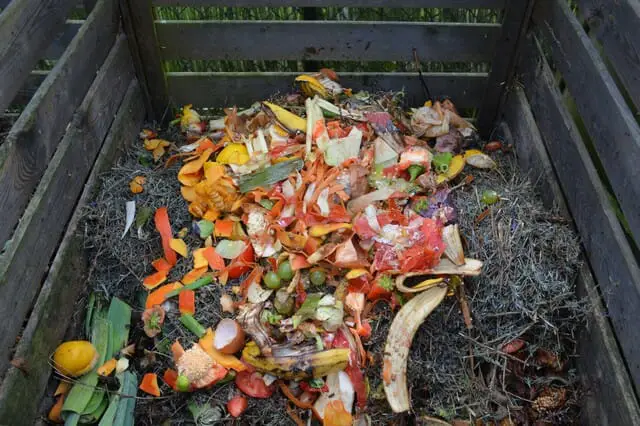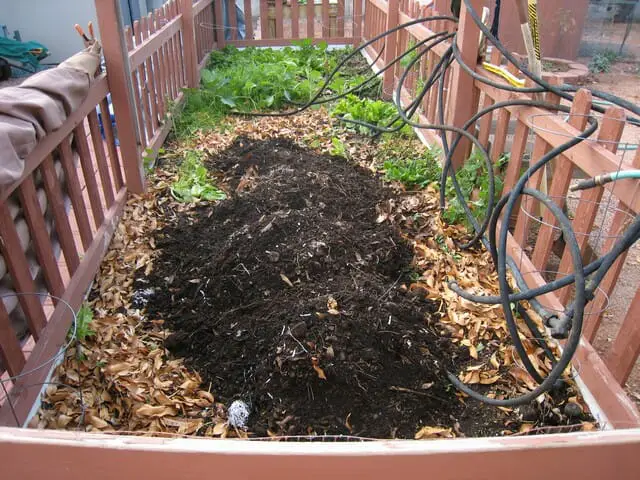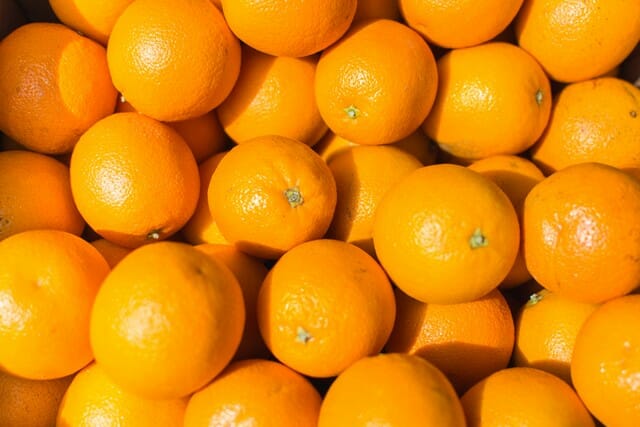Last Updated on March 31, 2022 by Grow with Bovees
We create a lot of waste in our kitchens, and a common question is, can you compost orange peels and lemon peels?
Orange peels and lemon peels, are both citrus, and can be safely put onto the compost heap.
Instead of sending them to a landfill, you can do everyone a favor. Let’s talk about that.
Composting is a great way to get rid of these kinds of waste and if you have a garden, that’s just perfect. When it comes to citrus items, there are a few things to take care of. It is not as simple as tossing them in the bin as part of the greens and browns you need for composting.
Lemon peels and oranges are a big part of citrus fruits and composting them can be a bit of an art. And if you get it wrong, you’re really not helping your own cause of reducing food waste. Some people ask, are lemon seeds toxic?, but that’s another story.
Often, the idea of composting citrus is frowned upon because they are highly acidic. Let’s see what that is all about.

Composting Citrus Peels
The first problem with citrus peels is that they are not easy to break down in a compost pit. This has made quite a dent in their reputation as compostable food scraps. But you can escape that by breaking them down into smaller pieces. It’s just like cutting up the meat for your little one at the dinner table. You can chop them up before adding to your counter top kitchen compost bucket with all the rest of your food scraps.
There is also the problem of acidity. Citrus peels are said to have many chemicals that are used in the making of organic pesticides. And that’s true. But the chemicals in them actually disintegrate quite quickly and evaporate even before you have the chance to throw them in your compost.
Citrus Peels Can Help To Deter Pests
When it comes to using them in a garden, a lot of home gardening enthusiasts worry that they may keep useful insects away. That is actually not true. In fact, these peels might just come in handy in driving scavengers away from your compost bin. That is because they have a strong scent that scavengers and pests really hate.
Now, let’s get to it. There are two ways to take care of citrus peels in compost.
Hot Compost Pile Procedure

Here is the procedure to treat them in a hot compost. In this process, compost is created without losing heat so that the process can be quickened.
Step 1: When you start feeding for the hot compost, you must stir the contents routinely to introduce oxygen. You can make this task easier by using a compost aeration tool with a long handle. Ideally, you should do it every few days, so that the parts at the center of the pile, which are the hottest, can be pushed outwards and the rest can move into the middle.
Step 2: Make sure the citrus peels are in the middle of the pile so that they are literally in the thick of things. If you are worried about pests, you might want to bury them a little. Hot composts can reach rather high temperatures of 110-160 degrees Fahrenheit (71.11 °C) to ensure that plant diseases, pathogens and seeds are killed.
Step 3: Peep into the compost every day to make sure heat is distributed uniformly and the moisture levels are just right. And as you should with all compost piles, make sure the nitrogen to carbon ratio is the way it should be (that is 50-50 or 60-40).
When the greens and browns are well balanced, the compost is damp enough and the contents are mixed well, it takes about four weeks to get the final product. If you don’t follow up every day and fail to stir the metaphorical pot, it might take up to four months.
Cold Compost Bin Procedure

Then there is cold composting which is a lot less effort. All you need to do is build the pile and let the ingredients decompose naturally.
Step 1: If there are weeds included in your compost ingredients, start by removing the seeds and throw them out in a regular trash can. This is a very important step since there is no heat to kill these seeds. And if you neglect it, the seeds can germinate in the pile.
Step 2: Using a knife or a pair of scissors, chop the fruit or citrus peels into small pieces, the same procedure you would use for composting banana peels so that they decompose faster.
If you skip that step, the big pieces stay intact and might even lead to compost balls which, while useful, are not ideal.
Even so, since we are not using heat, this process is likely to take a few months and maybe up to a year. The time period is heavily dependent on the carbon to nitrogen ratio and the amount of dampness in the compost pile plus the weather conditions outside of it.
Some grass clippings or used paper towels, or even used coffee filter papers can be added to speed the process if necessary.
Step 3: Make sure pieces of orange peels and/or fruit are buried in the middle of the compost pile. You can even give them a little nudge wearing gloves or with a composting tool or a small shovel. This way, the smell becomes weak and insects and pests stay away from your bin.
The Acidity Factor Of Orange Peels

About the acidity.
While it is true that it can be a problem, the operative part here is the “can be”. You can easily deal with the issue if you maintain a balanced bin and include things like stale bread, grass clippings, etc.
Once you have that in place, the compost spread of the soil will not contain that level of acidity.
How To Maintain The Balance
Well, if you are dealing with lemon peels, don’t overdo it. In a good compost pile, a few orange peels or other citrus peels are not going to be a problem.
But if you are making orange juice and throw in peels from all of them every day, your compost bin could be in troubled waters, make sure to balance it out with other green and brown materials.
Some producers of composting systems have stated that the citrus from these fruits, especially lemon peels, has a lot of benefits for a compost bin since these fruits are rich in nitrogen, potassium and phosphorus. This is the deal with traditional composting piles.
But if you have vermicompost, you want to pay close attention because not all worms like to consume citrus waste.
Pectin In Citrus Fruit
Since citrus fruits are rich in pectin, which is a fiber used in the composting process, it is often said that citrus fruits make a good compost additive. There are two reasons why this is true.
Pectin is a plant fiber that holds water and helps with the decomposition process. It is also an efficient food for composting organisms.
Parting Thoughts About Citrus In Compost
While there is an acidic aspect to it, citrus waste is an excellent source of essential energy for the plants. The minerals in the fruit keep the compost pile nutritious.
Their smell keeps pests and smaller animals away. And finally, friendly insects will not be driven away because the breakdown of chemical oils is rapid. So as long as you do it in moderation, adding citrus to compost is a great addition to your composting efforts.
